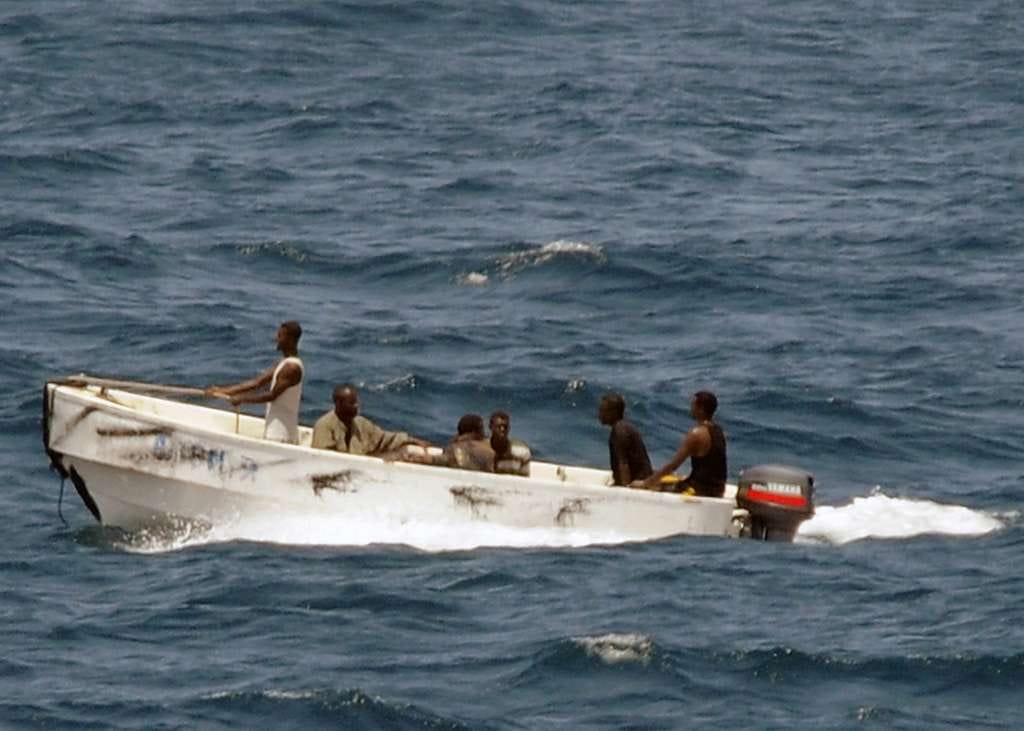Pirates of the Caribbean make their comeback
The first six months of the year saw the largest increase in piracy in half a decade
Piracy is making a comeback in the Caribbean. The heavily-romanticised days of swashbuckling privateers roaming the waters of the Caribbean Sea and sacking Spanish colonial cities may be long gone, but there has been a heavy spike in global piracy this year.
Piracy increased by 50 per cent year-on-year in the first half of 2025, the largest increase since 2020, according to figures from the International Maritime Bureau.
While piracy in East Africa or Southeast Asia often revolves around kidnappings for ransom, pirates in the Caribbean are typically based on small boats and board vessels armed with machetes or guns to rob them of their cargo, according to Insight Crime.
When these incidents happen in territorial waters, they are technically classified as armed robbery, making it harder to deal with.
Piracy hotspots in Latin America include the Gulf of Mexico, the Caribbean coasts of Colombia and Venezuela, and the Pacific coast between Peru and Ecuador. Researchers linked increased incidents in the Caribbean to the Venezuelan economic crisis.
Thailand: A lion belonging to a social media influencer broke out and bit an 11-year-old boy in rural Thailand. A passerby who intervened to help the boy was also injured. The owner of the lion is well-known online for posting videos with her and said he had let her out of her cage for renovations. Locals said this was the third time the lion had escaped in just a year. (Khaosoden)
Belgium: A third of waste shipments inspected at the Port of Antwerp-Bruges have been found to violate the law. This equates to hundreds of shipments a year. The violations range from incomplete documentation to the shipment of prohibited materials. e-Waste is often marked as second-hand items. A new partnership was launched this summer between local prosecutors and police to tackle the problem. (Brussels Times)
Vietnam: More than seven tonnes of wildlife products – including pangolin scales, python skins and animal bones – were seized in southern Vietnam. The items were being transported by boat and were believed to have been smuggled into the country from Indonesia for sale. Authorities said several of the species involved are protected by Vietnamese law. (Tuoi Tre)
Europe: The European Parliament has called for the elimination of all illegal trade in wild animals and plants by 2030. MEPs called on all parties to recognise international wildlife trafficking as a serious, organised crime, and called on EU member states to criminalise ownership of illegally-sourced wildlife. They also called for the creation of a “positive list” of animals that may be kept or traded as pets in the EU. (European Parliament)
Cyprus: A 10-day operation against songbird trapping networks resulted in the seizure of 1,200 birds and fines of 62,000 euros. Officers targeted what they said was the “core” of organised bird trapping in the cities of Larnaca and Nicosia. On a September 26 raid in Larnaca, officers found more than 400 birds as well as large trapping nets and loudspeakers with bird-mimicking devices. (PhileNews)
India: Officials in northern India are concerned about a spike in elephant deaths in the Haridwar Forest. Rangers found three carcasses of the animals in only six days. Authorities have not confirmed how the elephants died, but locals have speculated they were killed by electrocution. It is not clear whether this was accidental, after collisions with farmers’ fences, or intentional. (Garwhal Post)
Bangladesh: Nearly 1,000 turtles were seized at Dhaka’s international airport, apparently en route to Kuala Lumpur, in Malaysia. Scans of a passenger’s luggage showed the animals and the owner of the suitcase fled when called by security staff. The turtles have been placed in the custody of the forestry department. (BD News 24)
Kenya: Two people were arrested and a motorbike seized allegedly linked to the illegal trafficking of ivory. The two suspects were found with seven pieces of elephant tusk hidden in a bag. The pieces weighed more than 11kg. (All Africa)
Vietnam: Vietnam has set a goal to eliminate illegal and unregulated fishing by the end of November. The pledge came ahead of an inspection by the European Commission. Coastal agencies have been ordered to coordinate to manage vessels which currently lack registration. (Oana News)
India: Officers seized 7kg of pangolin scales in the central Indian city of Hanamkonda. Pangolins are endangered and their trade is banned in India and internationally. But there is a significant market for their scales, which are believed in parts of Asia to have medicinal properties. Four individuals were arrested. (First India)
West Africa: Chinese vessels, often operating illegally, have wrought destruction across seas off West Africa, according to a new report from the Atlantic Council. These companies, both state-backed and private, have rapidly expanded into fishing in the area, the report says. They use bottom trawling and other “destructive methods” which have led to a decline in fish stocks. (Atlantic Council)
Thank you so much for reading Wild Crime. This is a fully reader-supported publication with no outside funding. Paid subscriptions make it possible for us to dig deeper and pursue investigations that take time and resources. But even if you’re reading for free, you’re helping to keep this work alive, and I’m grateful for that.
If you’d like to support Wild Crime further, consider becoming a paid subscriber or sharing this newsletter with someone who might find it interesting. Every bit of support makes a real difference.


